News and Resources
Welcome to the Maasai Stoves & Solar Project. We are the primary focus of the International Collaborative, also known as the International Collaborative for Science, Education, and the Environment. ICSEE is a non-profit organization based in the U.S. and Tanzania and ICSEE (T) is a non-profit organization based in Tanzania.
Explore our data. Read below to learn about Cypress Hill, our new campus. Read stories at our enews archive to learn more about the progress of the Maasai Stoves & Solar Project. Stay in touch with International Collaborative news stories.
View a video by Mercy John about the International Collaborative work
Collaboration news
Collaboration news
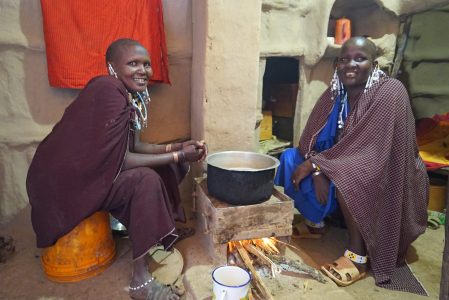
ICSEE stove
Humanity for Children and the Olmoti Project recently added a key dimension to their life-improvement work.
The people they serve in clinics and schools and sewing centers are going home to very unhealthy homes. These groups are finding the resources to invite the Maasai Stoves & Solar Project to their work areas. These collaborations are bringing healthier homes to the people through the Project.
Work with the Project gets the smoke out of the houses and lights them with solar-powered electric light, far from the grid in these locations.
The Project trained new members of the Maasai Women’s Installation Team in Simanjiro district and in the remote Olmoti village at the eastern base of Mt. Kilimanjaro. They are installing the ICSEE stoves into the houses of the people.
Collaborating with Canada
The International Collaborative announced a new collaboration with the Mto wa Mbu Folk Development College. The Canadian government, together Canadian and Tanzanian institutions, invited the ICSEE to partner as a Community Based Organization.
The Canadian collaborative entity aims to empower women and adolescent girls with educational opportunities in Tanzania. They wish to spread training into the communities so the women and girls can participate, enter into business, and thrive.
These new educational opportunities do not necessarily involve full degree programs in Tanzania. Folk Development Colleges, (FDC) and Community Based Organizations (CBO) partner with each other and with the Canadian colleges.
Folk Development Colleges are developing short, effective courses. The Community Based Organizations, including the International Collaborative, also facilitate short trainings.
This is a different approach from the Maasai Stoves & Solar Project’s on-the-job training where business training is simultaneous with business launch. The existing approach starts the action and helps create the power to continue it successfully.
The people of the Project look forward to collaborating with the Canadian groups and exploring their approach in the upcoming engagement.
Reducing drought’s disastrous effects

Drought challenges rain-based economies
The International Collaborative is providing training to the Maasai men—the traditional herders and to the Maasai women who are part of the organization. The training focuses on reducing the impact of drought.
Climate change has brought drought to many parts of the world. As a result, there is a food crisis in these areas. In northern Tanzania it is causing severe food shortages and high food expenses. It is much worse to the north.
Integrating weather forecasts, market news, transportation costs, and collaborating as closely as possible with others finding solutions to livestock care problems can prevent the worst. The Manyara feedlot and production of good cow fodder are important resources.
Organizing women’s groups in Maasai Lands
As Project Leaders reflect on our work and accomplishments, and listen to the people we are working with, we realize helping women cooperate and bring income to their village and family might be the most important thing we do.
There are of course two reasons for this importance of this part of our work. Whatever else poverty calls out for, more income is the first thing that is needed.
The conditions of life are getting harder. Climate change is serious. Life’s basic needs—food and water—are more expensive because of climate change.
The International Collaborative is very grateful for the collaboration with the Global Fund for Widows that helped us get the first nineteen Widows Groups organized.
We continue the program, carefully allocating general funds to help the many women who are organizing themselves and coming to us for training and capital. Assisted by Mesha Singolyo, these groups help generate income for the members from market-based and livestock fattening businesses that they own and operate.
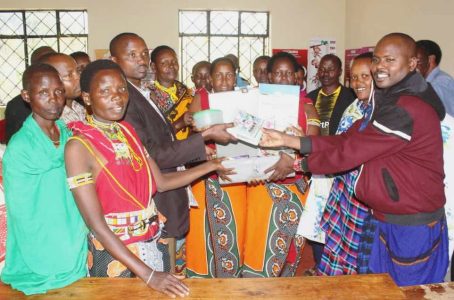
Widows groups succeeding with cooperative banks
Cypress Hill
The International Collaborative for Science, Education, and the Environment, Tanzania (ICSEE (T)) announced the completion of the initial phase of major renovations to the Cypress Hill educational campus. This phase includes a new Dining Hall and Kitchen, new Classroom Building with Computer Center and updated Library, and a Dormitory, and living quarters for trainers.
Cypress Hill is located on the southern edge of Monduli in the village of Lachaine, not far from International Collaborative headquarters.
More than seven years ago, the ICSEE received Cypress Hill as a valuable gift from the Association for Community Empowerment and Development (ACEDE), a Tanzanian NGO headquartered in Tanga.
Uhuru Torch Awards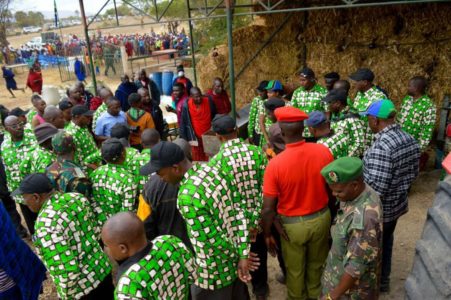
The Uhuru Torch Award recognized the ICSEE four times in recent years.
The Uhuru Torch symbolizes freedom and light. It was first lit on top of Mount Kilimanjaro in 1961. Symbolically, it shines across the country and across the borders to bring hope where there is despair, love where there is enmity, and respect where there is hatred.
Yearly there is the Uhuru Torch race, starting from different regions throughout Tanzania, to remind Tanzanians to guard their cherished freedom, unity and peace.
In June, 2019 the the Torch came to the Project at the Losirwa boma to recognize the core work with stoves and solar, including micro-grid work.
The Torch representatives inspected the equipment. They saw how the stove stopped smoke and the house had light. That evening, speeches were shared, describing the importance of the work and how it must be sustained.
A historic visit to the Project
Read excerpts from VP Dr. Bilal’s speech, “Spread the technology all over the country”
Enguiki village, Monduli Juu, Arusha, Tanzania—Tuesday, February 25th, the Maasai Stoves & Solar Project of the International Collaborative hosted His Excellency, Dr. Mohammed G. Bilal, Vice President of the United Republic of Tanzania.
Together with Minister of the Environment Dr. Binilith Mahenge and officials of Arusha region and Monduli district, Dr. Bilal toured the Project for an in-depth look at the health, environmental, and economic benefits.
The group visited the Maasai village of Enguiki, located in the plateau of the Monduli Mountains just west of Mount Meru, 100 miles west of of Mt. Kilimanjaro. This region, extending west to Mto wa Mbu and the famed Rift Valley with its salt lakes and live volcano, is one of the areas where Maasai live today. The Vice President also visited Project Headquarters and the Factory located in this region in Monduli town.
“Difference is like night and day”, said the VP
Vice President Bilal experienced a smoke-filled Maasai dwelling where the traditional three-stone fire is still being used, and also visited homes with the new stove, and witnessed the difference the stove makes for the health and quality of life of the Maasai people. “I visited two homes, one with and one without the new stove and the difference is like night and day.” He met 80 members of the Maasai Women’s Stove Installation Teams and observed them at work. Afterwards the entire community congregated for his speech, remarks by the Regional and District Commissioners, music performance by the children, and an exchange of gifts.
Photography, video, and illustration
Thank you to Philip Lange for the marvelous photography selections throughout the website. Thank you to Jessie Bryson for allowing us to share some of your images. We appreciate the work of Informmotion for the clear and colorful illustrations. And a special shout out to Morgana Wingard for producing such a powerful presentation about the Project.
Read a fascinating blog by two Boston teachers
Thank you to Stephanie Toledano and Erica Wilson, teachers at the Boston Green Academy, for creating such an interesting blog, supported by the Fund for Teachers fellowship. Read their first-hand experience of participating with the Project.
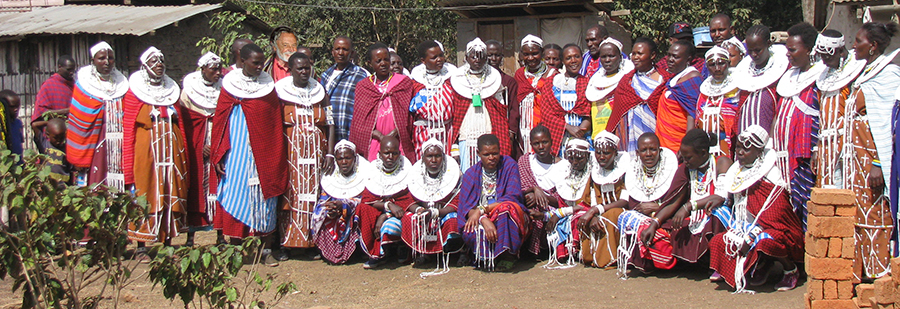
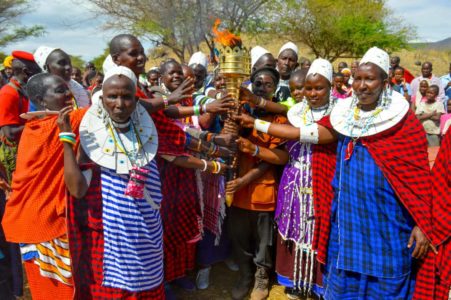
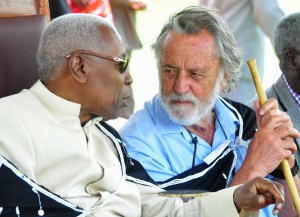

 International Collaborative for Science, Education, and the Environment
International Collaborative for Science, Education, and the Environment